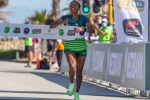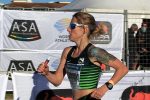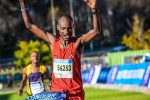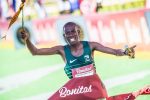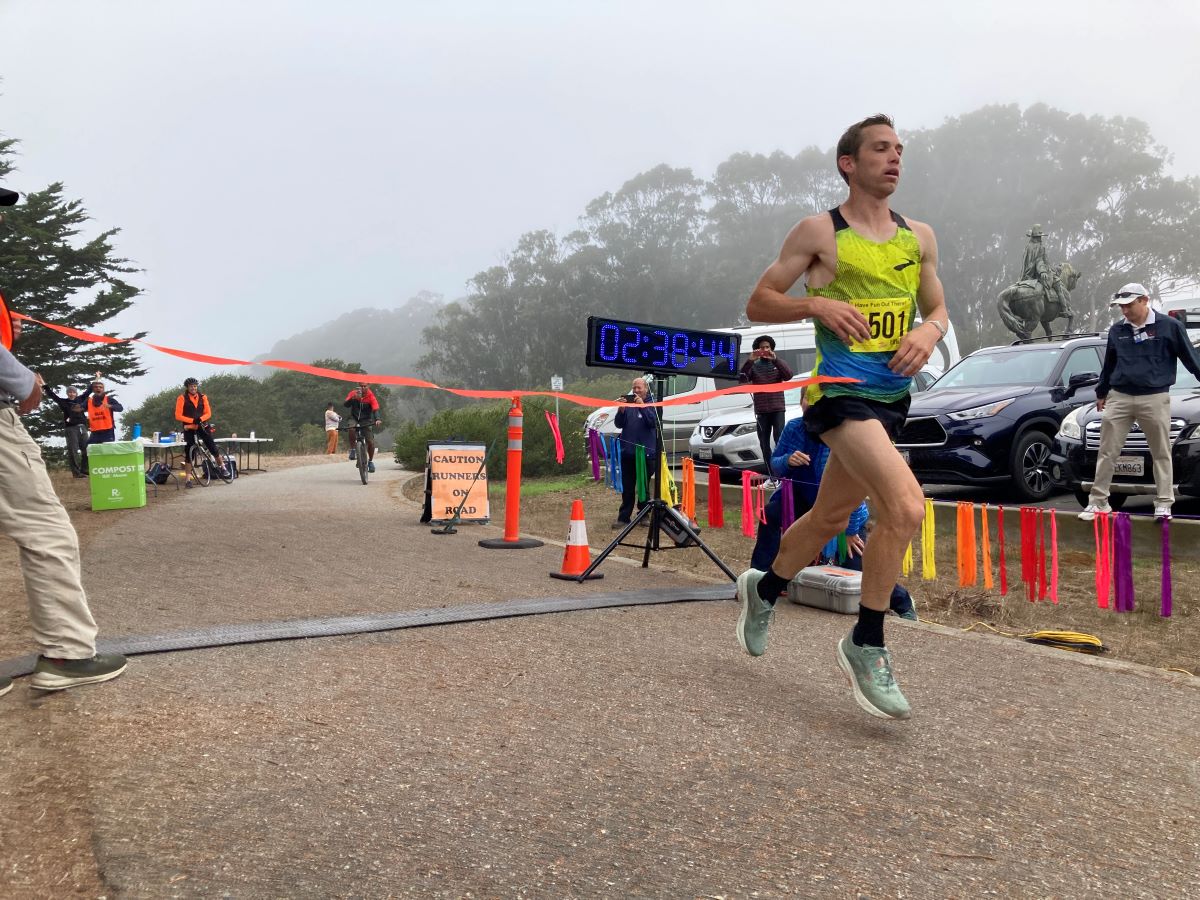The 50-kilometer distance has been hotly contested in the last few years, and the 2023 Nedbank Runified 50k brings even more heat. The race takes place on Sunday, February 26, in Gqeberha, South Africa, on a course consisting of five flat 10-kilometer laps by the ocean.
The women’s and men’s races take place separately, the first of which starts at 5:30 a.m. local time, with the aim of running through the cool morning air.
Nick Bester, the race director and prior Comrades Marathon champion, is bringing together an elite field for the third time at this event. The aim of this race has been to challenge the existing 50k world records. The event also provides opportunities for other established and upcoming runners to post a fast 50k time.
To this end, it has succeeded. At this event in 2021, Irvette van Zyl (South Africa) set the current women’s 50k world record for a women’s-only race in 3:04:24. Stephen Mokoka (South Africa) set the men’s 50k world record when winning the event in 2022, in a time of 2:40:13.
That said, Des Linden (USA) has a faster-recorded women’s 50k world record for a mixed race of 2:59:54, and CJ Albertson (USA) has a pending faster-recorded men’s 50k world record of 2:38:43 from late 2022 which is still awaiting ratification.
The race will have live TV coverage in South Africa. Check out the full entry lists.
So can any of the 2023 Nedbank Runified 50k entrants challenge these existing world marks? In this article, we preview the women’s and men’s races and look back at the historical progression of the 50k world record.

Irvette van Zyl setting the women’s 50k world record for a women’s-only race at the 2021 Nedbank Runified 50k. All photos Tobias Ginsberg unless otherwise noted.
2023 Nedbank Runified 50k Women’s Preview
On paper, the fastest woman in the field looks to be Amelework Fikadu Bosho (Ethiopia). She won the 2022 race, missing van Zyl’s world record by just over 30 seconds, reportedly fading in the latter stages as the temperature soared. The start time is now earlier for both the women’s and men’s races to help mitigate the higher temperatures. Bosho has a marathon best of 2:30:33.
Possibly the woman with the fastest marathon time in the field, Hanna Lindholm (Sweden), could be the one to push Bosho hard. The Swede has a marathon best of 2:28:59 from 2020 and recorded 2:32:08 in Oregon last July in the World Athletics Championships. She followed this up with a 2:38:44 at the European Athletics Championships a month later. This will be her first road 50k, but those back-to-back marathons indicate that she will handle the 50k distance fine.
Another European, Dominika Stelmach (Poland), with a marathon best of 2:36:45, may also figure. Although without the marathon speed of the other two, she has the best ultramarathon pedigree, with a string of excellent results, including a second place at the 2022 Comrades Marathon and third place at this event in 2021.
In the absence of van Zyl this year, the South African interest will focus on local runners Adele Broodryk, third behind Stelmach at the 2022 Comrades Marathon, as well as Kelly van Vliet and Ntombesintu Mfunzi.
2023 Nedbank Runified 50k Men’s Preview
With no contenders in the field outside of the African continent, this will be a race between Ethiopia, Zimbabwe, and the host country’s runners.
If we are talking of raw marathon speed, Ngonidzashe Ncube (Zimbabwe), with a 2:11:46 set last year, and Endale Abayneh Belachew (Ethiopia), with a time of 2:11:51, are the fastest on paper. While fast marathons don’t always translate to a good 50k, Belachew certainly has the pedigree, having won the 56k Two Oceans Ultramarathon in 2022.
A quartet of previous Comrades Marathon winners, all South African, are on the entry list: Tete Dijana, Edward Mothibi, Ludwick Mamabolo, and Claude Moshiywa. This group certainly has the endurance.
Mamabolo and Moshiywa might not figure at the sharp end as their Comrades Marathon victories go back to 2012 and 2013, respectively. Dijana achieved his Comrades Marathon win more recently in 2022, and Mothibi in 2019. Both should mix it at the front. Dijana finished second at this event last year in a time of 2:44:09, while Mothibi was a close third in 2:45:27. Both will be hoping they can improve.
The Rise of the 50k Race Distance and World Record
Only in the last 40 years has attention turned to records over the 50-kilometer distance, and until recently, 50k has always been an underrated and under-raced distance. Two international initiatives in recent years have helped stimulate interest.
Firstly, the International Association of Ultrarunners (IAU) has developed the IAU 50k World Championships and the IAU 50k Continental Championships. The initiative has given a focus to the distance and a pathway for competent marathon runners moving up to a longer distance.
Secondly, World Athletics, in July 2022, passed a motion recognizing 50k as a legitimate record distance to set alongside the 100k distance. The organization has recognized 100k for nearly 30 years now. This has also added kudos to the 50k as a stand-alone race distance.
World Athletics has recognized 50k and 100k for road performances only and not track, whereas the IAU recognizes all surface performances, including 400-meter tracks, for both men’s and women’s 50k world records on certified courses.
Another major initiative that has improved 50k performances is the emergence of the Nedbank Runified 50k, starting in 2021.
Progression of the Women’s 50k World Record
According to the DUV website’s women’s 50k all-time list, the first woman to run sub-3 hours and 30 minutes for 50k was Helen Lucre (New Zealand/South Africa), who did so in 1985 in the point-to-point Pretoria 50k.
Her South African compatriot, Frith van der Merwe, took 50k to another level. The multiple Comrades Marathon winner ran 3:16:57 at the 1988 Pretoria 50k, lowering that to 3:08:39 in a split recorded at the Two Oceans Ultramarathon in March 1989.
Later that year, in August 1989, van der Merve recorded a phenomenal 3:04:30 at the Pretoria 50k. The Pretoria 50k course, like the Comrades Marathon, alternated directions each year. Being a point-to-point course with the fastest times recorded on a down year with a net drop in height, they cannot be considered world record performances. The times were nonetheless credible and an indicator of what could be achievable. So the point-to-point course precluded this time from being regarded as the women’s 50k world record, which meant that her 3:08:39 from the 1989 Two Oceans Ultramarathon stood as the women’s 50k world record for years.
This was the mark that the British Olympic Marathoner Alyson Dixon bettered when winning the 2019 IAU 50k World Championships in Romania, running 3:07:20.
The Nedbank Runified 50k has also seen that time consigned to history, where South African Irvette van Zyl ran 3:04:24 in 2021.
American Olympian Des Linden ran the only sub-3-hour performance by a woman to date when recording 2:59:54 in April 2021, a month before van Zyl’s time. World Athletics currently acknowledges both times, but Linden’s for a mixed race and van Zyl’s for a women-only race.
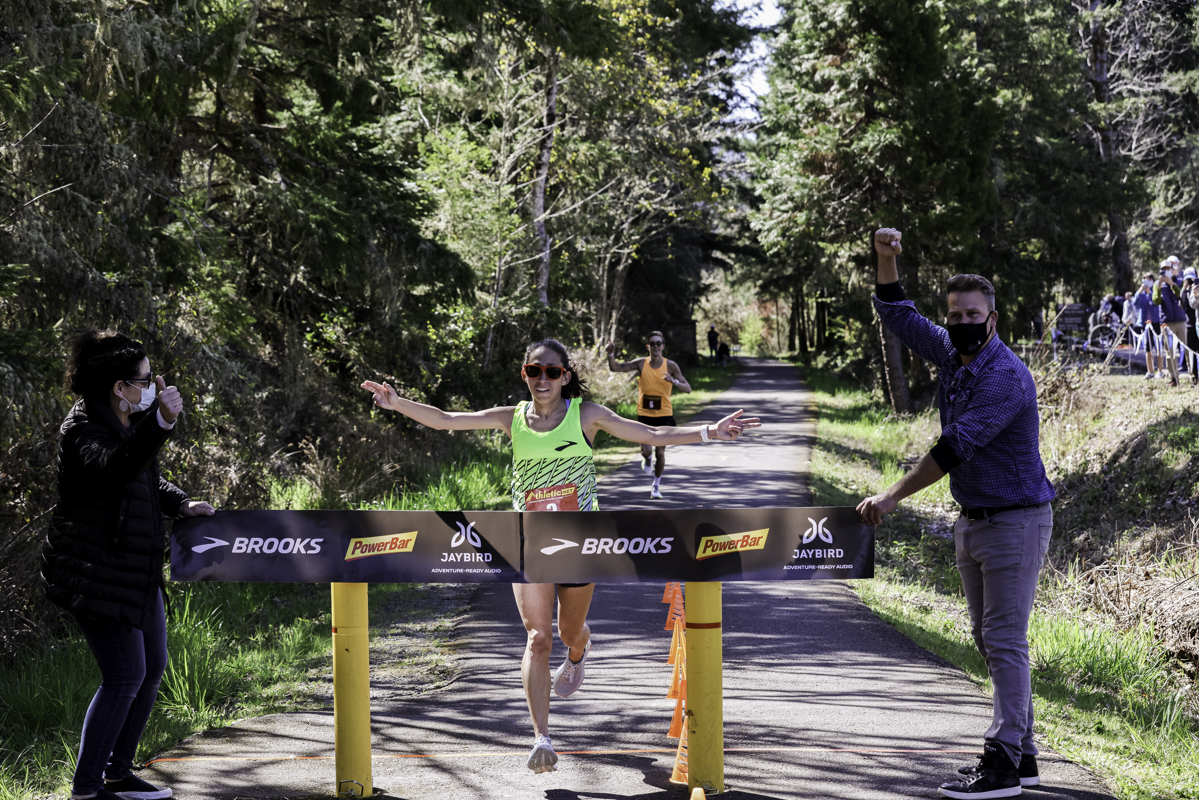
Des Linden setting the women’s 50k world record for a mixed race of 2:59:54 in Oregon on April 13, 2021. Photo: Brooks Running
Progression of the Men’s 50k World Record
According to the DUV website’s men’s 50k all-time list, the first recorded sub-3-hour performance for 50k seems to be by British runner Tom O’Reilly, who recorded 2:59:38 at a track race in London in 1976. The British Road Runners Club organized a series of track races around this time at various distances, with many records set.
The legendary Scottish ultra pioneer, Don Ritchie, improved this to 2:51:38 in 1977, also in a track race organized by the same Road Runners Club.
The South Africans then seem to take ownership of the distance starting in 1978. The point-to-point Pretoria 50k event produced some great times, though they were not world-record eligible. South Africans Johnny Halberstadt, Willie Farrell, and Ben Choeu took the time down in increments to 2:46:08 by 1982. Sadly, 2015 saw the last running of the original point-to-point course.
In the 1980s, officials realized that fast 50k times were happening at the Two Oceans Ultramarathon. These 50k times, however, were never recorded, as the full race distance is 56k. Somewhere around this time, the 50k point of the course was accurately measured, so that times could be taken at it. Thompson Magawana, with a marathon best of 2:10:39, was officially recorded at 2:43:38 for 50k during the 1988 race. His time stood for over 30 years.
The emergence of the Nedbank Runified 50k starting in 2021 has seen that time finally bettered. The year 2021 saw Ethiopia’s Ketema Negasa run 2:42:07 on the flat, coastal course. Last year, Stephen Mokoka (South Africa) lowered that to 2:40:13. World Athletics ratified that as the official men’s 50k world record.
In October 2022, the American CJ Albertson took the men’s 50k world record below 2 hours and 40 minutes for the first time, recording 2:38:43 in California. His time is still awaiting ratification from World Athletics.
Call for Comments
- The organizers of the Nedbank Runified 50k have assembled a stellar field for 2023. The question is, can Albertson’s or Linden’s times be improved to establish even better marks than the Americans?
- What are your predictions? Who will come out on top on Sunday, and will any of these records fall?
